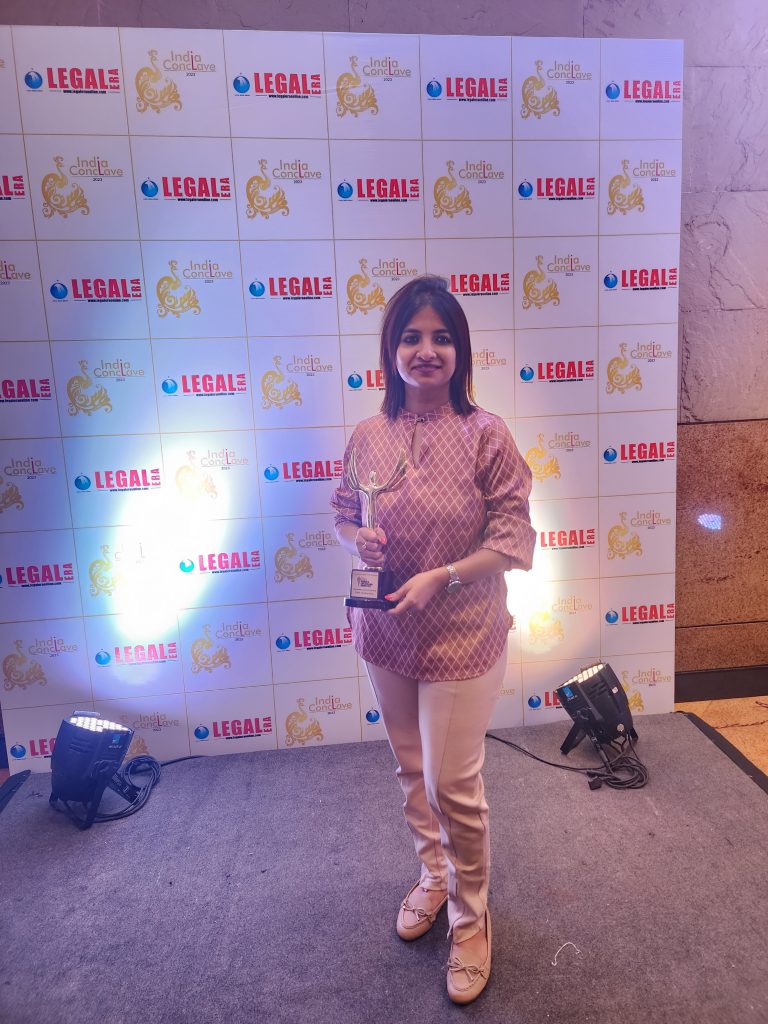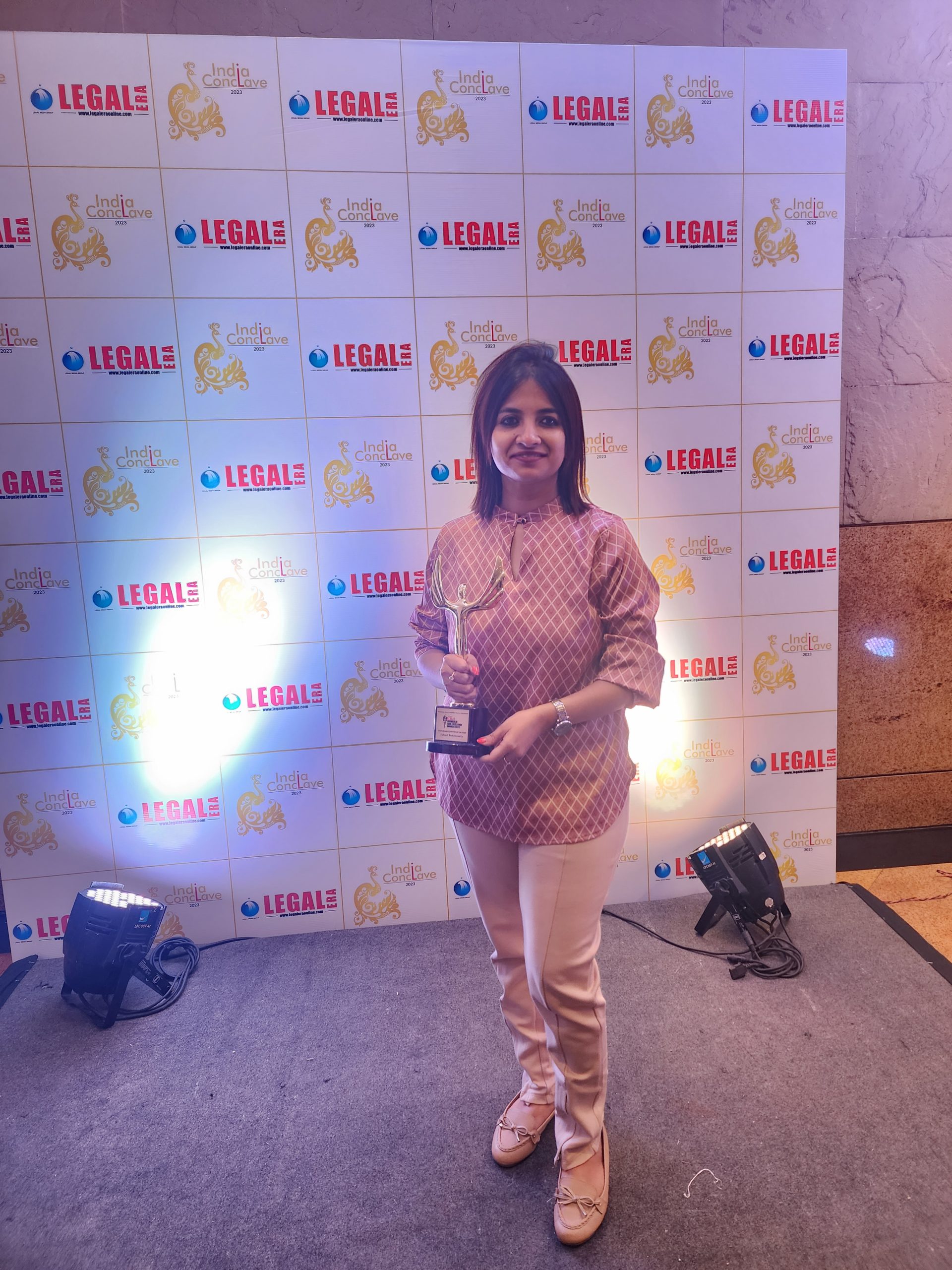This Interview has been published by Pragya Chandni and The SuperLawyer Team

Can you walk us through your journey from starting out as a lawyer to becoming the Chief Compliance Officer & Group General Counsel at CtrlS Datacenters & Cloud4C? What pivotal moments or experiences influenced your career trajectory?
I am a first-generation common law jurisdiction qualified lawyer and my professional journey in the realm of corporate/commercial law and compliance domain commenced in the year 2008. I however started working practically full time whilst I was in my second year of the 5 years integrated LLB degree. The actual reason why I decided to pursue law is because I wanted to appear for the civil service examination. However, once I started pursuing my degree, I decided to change course. To be honest, law is one of the most nepotistic professions with a strong web of family legacy creating a launch pad for the next generation in their family. As is the case with any first-generation lawyer who does not have any legacy support in this profession, I did have my fair share of challenges, both academically as well as professionally, at the nascent stage of my career. Whilst it appears like an incident from another lifetime, during moot courts, I recall my fellow students having very well drafted and researched memorials using the resources, support and guidance of their parent’s chambers whilst me having to struggle in this front given the lack of support. Likewise, for getting my first internship, given the fact that my college was new back then with no well established up and running placement committee, I recall several days of door to door walk-in interview attempts in the law firms based out of Fort Mumbai. However, I finally did succeed in getting my first internship with Legal Pundits, a case law repository portal. I was very active in my college and participated and won various intra as well as inter college debates, GDS, Moots including state levels. I strongly when one is determined and clear as regards one’s intent, guidance and support comes from unusual and unexpected quarters.
Whilst interning at Legal Pundits, I participated in an Exhibition where Legal Pundits had put up a promotional stall. Whilst participating in the stall, I happened to meet a solicitor who was kind enough to guide me to pursue my articles for the solicitor’s exam if I were serious about learning and building a career in this profession. Post my short stint in Legal Pundits, I wanted to pursue a litigation-based internship opportunity. However, as luck would have it, I was guided by a Senior Counsel, Mr. Naveen Parekh, whom my father engaged in one of his matters. Mr. Parekh guided me on the constraints inherent in litigation, both from timelines and financial standpoint and suggested that I must try getting into a corporate law firm given the potential and scope. As luck would have it, there was a sole placement posting by DPA, a corporate law firm in my college. I got into DPA and signed up for a 3 year article ship.
The advantage of interning in a small firm is that you get to handle all kinds of work and get tremendous exposure in all domains, be it work or billing or relationship management. I worked in DPA whilst pursuing my law degree and whilst it was tough to juggle between academics and full time internship, the tenure at DPA and the rigorous training and work pressure laid the groundwork in shaping me as a professional in the realm of discipline, hard work, tenacity and proactive approach. When you have limited choices, you learn to make the most of whatever comes your way. I appeared for the solicitor’s exam and cleared all my papers. I however missed my degree by 4 marks!
After my stint at DPA, where I got exposure to general corporate, commercial contracts, PE deal and real estate, I joined Majumdar & Co., after graduating in 2008 where I worked with Mr. Neerav Merchant, a partner handling general corporate and real estate for over 3 years. My stint at Majumdar & Partner has played a crucial role in my professional journey. This is because the level of discipline, diligence and focus on quality of work, be it research, drafting or client relations at Majumdar helped me inculcate the right values professionally.
After working in law firms for over 7 years, I decided to move inhouse. Post my transition into Aegis, the ITES arm of Essar group, the journey has been upwards and onwards with amazing exposure to both IT and manufacturing sectors thanks to my stint at UPL, an agrochemical company, Datamatics, an IT/ITES company, Nuvoco Vistas Corp, a top tier cement manufacturing company and now finally in CtrlS Datacenters Ltd., and Cloud4C as CCO and Group GC.
With your diverse background spanning law firms and in-house roles across various industries, what motivated you to transition between different sectors and types of legal practice?
Whilst I was working with the law firms, I got the opportunity to work on matters pertaining to different sectors, including IT/ITES, Pharmaceutical, Agro-Chemical, Heavy Industry i.e., coal and oil, Production Houses, FMCG. When you have clients from different domains and are working on different sets of issues, you invariably work on very stringent deadlines and have no choice but to acclimatize yourself as regards the relevant nuances, key variables and the sector specific issues that will have an impact on your advisory. This initial training helps you manage your time well, focus on what really matters to ensure quick turn-around and time bound support. At times whilst working as external consultant, the position adopted by in-house counsels that were not in sync with academic legal advice baffled me. I therefore was very keen to move in-house to get a well-rounded perspective and understand what are the factors that go into the decision-making process. My training and exposure in the law firms equipped me to handle and manage issues pertaining to different sectors with ease. The motivation therefore to work for different sectors and areas of practice was the keen desire to learn, understand and eventually add value to whatever I sign up for. The different types of work also break the in-built monotony as you are always on your toes tackling new issues.
I strongly believe if you are clear on your fundamentals and have the right discipline, you can easily sail through different sectors and areas of practice.
Your expertise encompasses compliance risk management, corporate legal, and litigation domains. Could you share some key challenges you’ve faced in these areas throughout your career, and how you’ve addressed them?
The mindset and the preparation that is needed in a corporate commercial domain as against litigation and compliance is different at many levels. However, there is a clear interdependence amongst various verticals. Whilst every role and stent had its own set of challenges, if I were to summarize the key challenge that has been common across various roles and sectors is getting your stakeholders and internal clients to appreciate your position and the rationale behind your advisory to ensure that the role of legal and compliance is not looked upon as a mere “paper pushing” activity and that cost and consequence of non-compliance is understood and factored in. Working on stringent timelines with quick turnaround time certainly cannot be labelled as a challenge but is a natural incidence of the profession and one has to make peace with it. On some occasions, I did face mansplaining, gender and age based adverse presumption and the consequent loss of opportunities given the inherent bias. However, I could manage to overcome these roadblocks and I must acknowledge the support of all my mentors and seniors in my workspace who helped me navigate and sail through the various challenges. There are certain key non-negotiable parameters to tackle challenges. For me it was being highly proactive, taking total ownership of what you sign up for, being empathic and ensuring that folks can count upon and trust you in all your endeavors.
Given your extensive experience in compliance risk management, what strategies do you find most effective in developing and implementing compliance frameworks within organizations, particularly in multinational contexts?
This is a very crucial question and goes to the heart of the inherent challenges in the risk and compliance domain. The most important strategy is to impress upon all the stakeholders that compliance is a necessary business cost and that you have to do things right the first time to set the right tone and context. The function of compliance is very intense and all-encompassing from a process, protocol and implementation standpoint and the key strategy is to create a culture of compliance. Setting the right tone from the top is equally crucial. Compliance is not a function in isolation and it certainly is not a one man show! For me, as a part of effective compliance strategy, the key elements have been (a) Setting the right tone from the top; (b) Keeping abreast with the latest tools/tech and implementing the same to effectively monitor and reduce manual errors; (c) Robust training and awareness programs; (d) Continuous internal and external diligences; and (d) Ensuring that there are well defined consequences in place in case of non-compliance.
You’ve worked with top-tier international law firms as well as leading corporates and MNCs. How do you navigate the differences in culture, priorities, and working styles between law firms and in-house legal departments?
With the increased focus on compliance, cost management and time bound advisory, the in-house role has become more all encompassing and challenging. I know of some of my friends who transited from top-tier law firms to in-house and were in for a rude shock. They presumed that after their stint in law firms, an in-house role would be a cake walk. Honestly, they were in for a rude shock. In an in-house space, the buck does not stop with simply giving an opinion and/or representing and you have your skin in the game vis-à-vis ensuring that you make all the stakeholders understand the risk to effectively manage and ring fence the exposure. Also, on any given day, when you are leading the legal and compliance function, you navigate through multiple issues. For example, in a single day, you will have issues ranging from reviewing a high value contract, to advising on HR issues having legal implications, to working on a PE deal, to finalizing the pre-litigation strategy to ascertain gaps in compliance management, policy updates and on and on. Whilst at in-house, your internal clients are lay man and they may have different levels of sensitivity and maturity vis-à-vis risk management. Making them see through and appreciate your rationale is a challenge that is only there in the in-house domain.
Data protection laws and regulations, such as GDPR and the UK Data Protection Act, have become increasingly complex and stringent. How do you ensure that your organization stays compliant with these evolving standards, especially in the realm of cloud services?
As I said, compliance and evolving regulation is a function of business and my job is to ensure that the operational and Infosec alignment are in place in sync with the ever-expanding requirement. We do this via keeping ourselves abreast with the latest developments in law, updating our policies, implementing necessary technical and organization measures, continuous training, and creating an ecosystem that has cross functional review and risk assessment measures in place.
In addition to your legal responsibilities, you’ve also managed various real estate, IPR, employee, and franchise-related matters. How do you balance the demands of these diverse legal areas while maintaining high standards of legal counsel?
My initial training of around 7 years in the law firm where we catered to clients from different sectors and advised on different issues helped me develop the right base to work and manage a variety of issues. However, it is also important to keep in mind that managing manifold matters is not a one man show. At a leadership level, finding the right resource and external advisors having the necessary subject matter expertise has also helped in tacking and managing issues effectively.
As someone with extensive experience and success in the legal field, what advice would you offer to fresh law graduates or aspiring legal professionals looking to build a successful career in today’s competitive legal landscape?
My advice to fresh law graduates is that there is no short cut and instant gratification in this profession. You must sign up to be a lawyer if you are in for a long haul! There is no option but to be prepared for continuous hard work. You will have to be very patient and tenacious. If you do not like reading, do not even think about getting into law for reading and law goes hand in hand. It is imperative to bear in mind that given the nature of the profession, it is very important to remain objective and detached to manage stress better and do justice to the matters you are handling. This profession is very demanding and you will invariably have to invest long hours, work on the weekends and make many sacrifices at personal front. It is therefore important to have a good support system. Focus on continuous learning and have an open mind. Ensure that you are dependable and can be trusted professionally.
Get in touch with Esha Chakravarty-
























